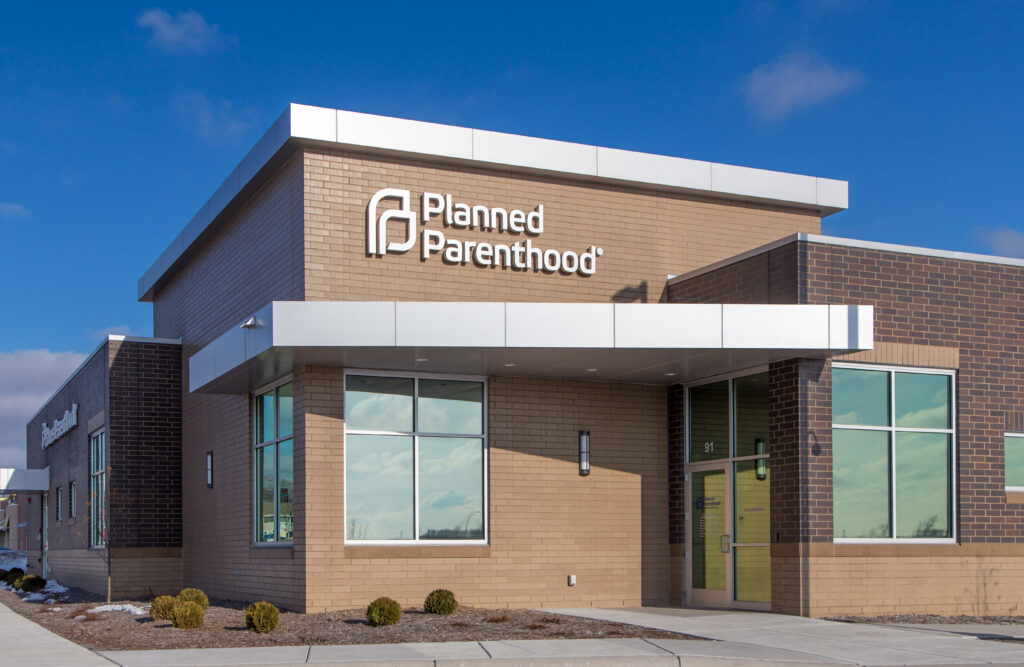Abortion Reporting: Louisiana (2022)
Louisiana’s 2022 abortion report was published by the Louisiana Department of Health in June 2023. Parish and clinic data were provided to Charlotte Lozier Institute (CLI) by the Department of Health upon request. The report shows that abortions decreased markedly from 2021.
Statistics and Changes in Louisiana Abortions, 2021-2022

Abortion Totals and Trends
In 2022, there were 4,570 abortions reported in Louisiana, down 39% from the previous year (Fig. 1). CLI estimates that Louisiana’s 2022 abortion rate, 5.0 abortions per 1,000 women ages 15 to 44, also decreased significantly (by 38%) (Fig. 2).1 As of October 2023, 23 states have released 2022 abortion statistics, with 10 reporting that abortions decreased from 2021.
State Report Summary
The majority of Louisiana abortions involved women in their twenties, with 30% involving women ages 20 to 24 and 27% women ages 25 to 29. Thirty percent were performed on women in their thirties, while 10% were performed on girls under the age of 20 and 3% on women over the age of 40.
Sixty-four percent of the abortions reported in Louisiana were performed on black women, 20% on white women, and 16% on women of other races. There were 26 abortions (0.6%) for which race was not reported. CLI estimates that Louisiana’s black abortion rate was 8.8 abortions per 1,000 women ages 15 to 44, five times the white abortion rate of 1.7.
Ninety percent of Louisiana abortions were performed on unmarried women. Nine percent were obtained by married women, and 1% by women of unknown marital status.
A majority of the abortions reported in 2022—56%—were conducted using suction curettage. Louisiana does not report chemical abortions separately, instead grouping them into a category of abortions performed using “other procedures.” These “other” abortions accounted for 40% of the total. Dilation and evacuation abortions made up 4% of the total, while the number of sharp curettage procedures was smaller than five and suppressed.
Twelve percent of Louisiana abortions were performed at six weeks of gestation or earlier, and 26% were performed between seven and eight weeks. Altogether, 38% of the abortions performed in Louisiana occurred at eight weeks of gestation or earlier, down from 52% in 2021. Twenty-four percent of the abortions were performed between nine and 10 weeks, similar to the percentage in 2021. In contrast, 38% of Louisiana abortions were reported at 11 weeks and later in 2022, up from 25% in 2021. Seventeen percent occurred between 11 and 12 weeks of gestation, 12% were performed between 13 and 14 weeks of gestation, and 8% were reported between 15 and 16 weeks. One percent occurred between 17 and 19 weeks of gestation, and none were reported at twenty weeks.
Thirty percent of Louisiana abortions were reported to have been performed for mental health reasons, while 2% were performed for the mother’s physical health. There were 21 abortions for rape or incest (0.5%) and 10 because of a risk of “fetal deformity” (0.2%). Most abortions performed in Louisiana, 68%, were performed for other, unspecified reasons.
After the passage of HB 357, starting in August 2021, the Department of Health posted additional data on abortions involving minors for the remaining portion of the year. However, 2022 data has not yet been posted as of September 2023.
Parish/Clinic Data
The Louisiana Department of Health provided CLI with information on the parish and abortion facility in which the abortions occurred (“parishes” in Louisiana correspond to counties elsewhere). Half of the abortions occurred at Hope Medical Group for Women in Caddo Parish. Twenty-eight percent occurred at Delta Women’s Clinic in East Baton Rouge Parish, and 22% occurred at Women’s Health Care Center in Orleans Parish. In addition to the 4,570 abortions reported in Louisiana, there were 993 abortions known to have been performed on Louisiana residents in other states. The report does not indicate where these abortions took place, and they are not included in any of the other tables in the report.
In August 2022, the Louisiana state Supreme Court upheld the state’s law that limits abortion in all cases except when the mother’s life is in danger or the unborn child has a “lethal fetal anomaly.” Following this decision, all three clinics in Louisiana decided to close down and potentially move to other states. The clinics originally declined to state where they planned on moving. However, in June 2023, the New York Times noted that the Shreveport clinic moved to Western Florida. Where the other two clinics moved, or if they have, is unknown.
Legislative Changes
In addition to Louisiana’s life at conception law, which went into effect after Roe v. Wade was overturned in June 2022, Governor John Bel Edwards signed two pieces of legislation to enact stronger protections against chemical abortions in the state. SB 342 contains a provision to prevent out-of-state companies from mailing Louisiana residents abortion pills. SB 388 prohibits the distribution of chemical abortion by mail or telehealth means and requires that women undergoing chemical abortions must be provided in-person care.
State Ranking
In CLI’s 2016 analysis of abortion reporting across the country, Louisiana was ranked 10th best. Louisiana could improve its reporting by adding chemical abortion to its abortion reporting form. Given Louisiana’s law limiting abortion except when the mother’s life is in danger or the unborn baby has a serious medical condition that is likely to be fatal, Louisiana could also require that abortion providers submit a written explanation of why an emergency abortion was necessary, as some other states do. Louisiana could also require any medical professional treating an abortion complication to report not just complications related to surgical abortions (pursuant to Act 425) but also require that complications related to chemical abortions be reported as well, as chemical abortions have a complication rate four times that of surgical abortions.


- National rates were calculated by the Guttmacher Institute. Louisiana rates were calculated by CLI using the following formula: (total number of abortions performed in Louisiana ÷ number of resident women ages 15-44 [based on most recent population estimates]) x 1,000. Rates may differ slightly from previous CLI articles due to revised population estimates and abortion totals. Population estimates were obtained from the CDC WONDER database. Population estimates were obtained from the CDC WONDER database. Estimates for 2005-2009 are intercensal estimates of the July 1 resident population. Estimates for 2010-2019 are Vintage 2020 postcensal estimates of the July 1 resident population. Estimates for 2020-2022 are Vintage 2022 postcensal estimates of the July 1 resident population. Estimates were produced by the U.S. Census Bureau and the National Center for Health Statistics.


























